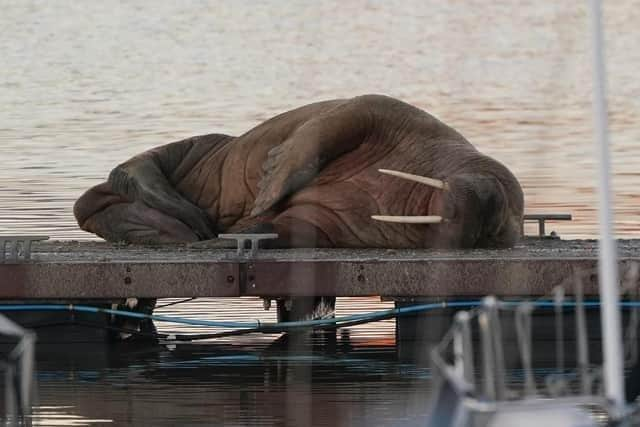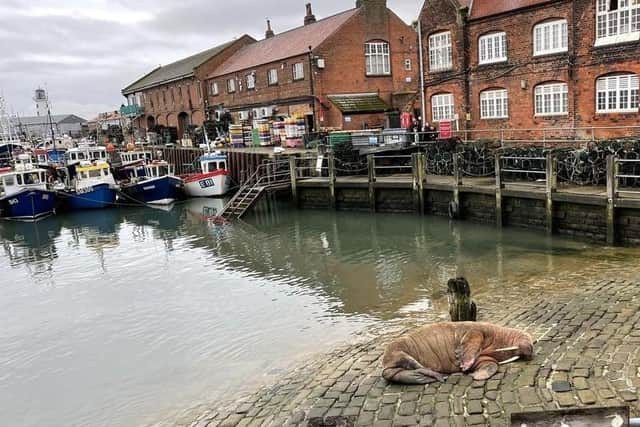Scarborough walrus Thor: Wandering walrus spotted 'frolicking' in harbour in Iceland
The animal was spotted “frolicking on a floating dock” in a bay in Iceland’s East Fjords after apparently swimming there from the north-east of the UK.
British Divers Marine Life Rescue said they were certain that the walrus was the same animal that entranced crowds in Scarborough over the New Year.
Advertisement
Hide AdAdvertisement
Hide AdThe organisation posted pictures of the animal on social media which they had taken while it was in Scarborough and in Iceland and said their director of welfare and conservation had matched the pale patches on his foreflippers.


BDMLR said: “After Thor’s visit to the UK we wondered whether if we would ever see him again.
"We are absolutely delighted to have been informed he is in Iceland!”
Thor was last seen in the UK in January taking a well deserved snooze at Blyth Yacht Club in Northumberland 100 miles north of Scarborough.
Advertisement
Hide AdAdvertisement
Hide AdThe animal’s latest appearance was reported by an Icelandic website, after he hauled himself out of the water on Friday at Breiðdalsvík, a small fishing community with a population of just 139.


The website reported that their own experts thought it might be fairly young or a female judging from the size of its tusks.
If it is Thor, it is the latest stopping place on a remarkable journey which some believe may have started in the Canadian Arctic.
After being spotted resting at Calshot beach in Hampshire, World Wide Fund for Nature's Rod Downie told the BBC in early December, Thor was likely to be an adolescent "vagrant" swimming south alone.
Advertisement
Hide AdAdvertisement
Hide AdMr Downie said as long as he was able to feed on his usual diet of clams and mussels off the seabed, there was "no reason" why he couldn’t survive in British waters, but would want to eventually return to colder climes.
Thor is also believed to have visited the Netherlands and Dieppe in France.
Walrus are considered to be facing a high risk of extinction in the wild.
Climate change is believed to be affecting their behaviour, with WWF saying the sea ice they depend on is “disappearing at a staggering rate”.
Advertisement
Hide AdAdvertisement
Hide AdTwo others – Wally and Freya – have been recorded off British shores in the last two years amid fears that they have been displaced by climate change.
Walrus migrate with the moving ice floes, but never venture far from the coast as they feed in shallow waters.
They can swim as deep as 100 metres to feed on molluscs and other invertebrates, but on average don’t go much deeper than 20 metres to 30 metres.
The animals vanished from Iceland around 1,000 years ago after being hunted for their ivory, which was once a luxury in high demand and was widely traded in the Viking Age and across Medieval Europe.
